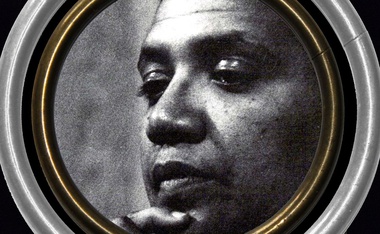In the interplay between expression and silence, the work of Audre Lorde resonates profoundly within the framework of Bahá’í teachings. Lorde, a distinguished poet, activist, and feminist, articulates a transformative approach to silence that echoes the Bahá’í principles of courage, justice, and empowerment. Her renowned essay, “The Transformation of Silence into Language and Action,” serves as a critical lens through which one may explore the intersection of personal integrity and collective responsibility. This article endeavors to elucidate Lorde’s perspective while situating it within the rich tapestry of Bahá’í thought.
1. The Imperative of Voice
At the core of Lorde’s assertion lies the inescapable necessity of giving voice to one’s inner truths. This call to action is particularly pertinent in contexts where silence is imposed by societal structures, cultural taboos, or individual fears. For Lorde, silence is not an absence; rather, it is a cocoon that can either suffocate potential or allow for the emergence of authenticity. This concept flourishes in Bahá’í teachings, which affirm that every individual possesses a divine potential that must be expressed for the betterment of humanity. The Bahá’í Faith advocates for the elimination of prejudices and the fostering of a vibrant dialogue among diverse communities, underscoring the power of shared narratives in dismantling barriers.
2. Silence as a Form of Oppression
Lorde articulates that silence can become a form of oppression: internalized, it stifles recognition of self-worth; externally, it perpetuates injustices. These assertions are mirrored in the Bahá’í emphasis on social justice and equity. Silence can mask societal injustices, whether related to gender, race, or class. The Bahá’í Faith calls upon its followers to engage actively in the discourse surrounding these injustices. Hence, the transformation of silence into action resonates as a crucial tenet. Lorde’s insistence that breaking silence is imperative for personal and collective liberation aligns closely with the Bahá’í commitment to eradicating the systemic inequalities that silence marginalized voices.
3. The Role of Fear in Silence
Fear often binds individuals to silence. Lorde references the trepidation inherent in speaking out, a theme that finds profound relevance within the Bahá’í context of spiritual and moral courage. The Bahá’í teachings advocate for overcoming personal fears, illuminating the path towards community advancement. The notion that one’s voice possesses intrinsic power dovetails with the belief that truth-telling is a sacred duty. This notion fosters an environment where courageously confronting fears becomes a spiritual exercise in itself. In social movements, voicing dissent against injustice hinges upon both the recognition of fear as a barrier and the imperatives embedded within the collective Bahá’í ethos to transcend it.
4. Language as a Tool of Empowerment
Language, per Lorde’s declaration, morphs into a potent instrument of empowerment. In the Bahá’í teachings, the written and spoken word carries immense weight; it is both a vehicle for truth and a catalyst for change. The act of articulating oneself—whether through poetry, literature, or community engagement—is viewed as a fundamental aspect of spiritual progression. Lorde champions the therapeutic potential of language, emphasizing its capacity to reveal deeper truths and forge connections among individuals. This notion is paralleled in the Bahá’í belief that words hold the power to shape perceptions and facilitate social development, thus elevating the collective consciousness.
5. Collective Action: Transforming Individual Voices into a Chorus
The realization of individual voices can culminate in collective action. Lorde posits that moving beyond personal expression to broader societal engagement is essential for genuine transformation. In the Bahá’í view, the unity of humanity is a guiding principle, and collective action emerges as a pragmatic response to communal challenges. This concept of synergy is integral to the Bahá’í approach toward social action, which encourages cooperative endeavors that align with moral imperatives. The idea of mobilizing individual voices into a harmonious chorus serves not only as a practical response but also as a spiritual obligation to uplift the disenfranchised.
6. The Ethical Dimension of Speaking Out
Addressing the ethical dimensions of voice and silence, Lorde insists that speaking out is not merely a personal act but a moral imperative. In Bahá’í teaching, ethical responsibility is paramount; individuals are urged to engage actively with their communities and strive to foster environments conducive to justice and equity. The ethical lens through which both Lorde and the Bahá’í writings view speaking out highlights the inherent responsibility to speak not just for oneself, but for those whose voices are stifled. This extends beyond individual experiences, advocating for a profound recognition of our shared humanity.
7. The Legacy of Empowerment
The legacy of Lorde’s insights invites a revolution in how silence is perceived and addressed. It challenges both individuals and collectives to engage with their voices authentically. This invitation is in perfect harmony with the Bahá’í vision of a more just and equitable world. As individuals transform their silence into language and action, they inherently embody principles that resonate throughout Bahá’í history and doctrine. The call to transform silence into action is not only an individual mandate but also a universal challenge—a call to foster dialogues that reflect the richness of diversity and the necessity of justice.
In conclusion, Audre Lorde’s exploration of silence and voice presents a compelling narrative that harmonizes seamlessly with Bahá’í teachings. The act of transforming silence into language and action carries profound implications, urging individuals to embrace their authenticity while collectively advocating for a just world. As individuals engage in this transformative journey, they embody their spiritual principles, moving towards a society that honors both the individual voice and the echoes of the collective. The quest for empowerment through language and action thus stands as a luminous beacon illuminating the path toward a more equitable future.
